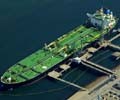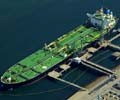

Crude loadings from Libya’s 300,000 b/d Es Sider terminal have been suspended again after protests calling for the removal of the chairman of state-owned National Oil Corp., Mustafa Sanalla, resumed, shipping and industry sources said Sept. 13.
This is the second time in almost a week that the key eastern port has been shut down.
The Suezmax Yannis P took more than a week to load a 1 million-barrel cargo due to protests last week.
The Yannis P on Sept. 13 finally reached its destination of Augusta, Italy, where it is in the process of discharging a cargo of Libya’s light sweet Es Sider crude, according to Platts cFlow trade-flow analytics tool.
An increasingly confrontational power struggle between Libyan Oil Minister Mohamed Oun and Sanalla has been brewing for many weeks, leading to numerous protests at some of the country’s key oil infrastructure sites.
Sources said demonstrations could also resume at the nearby Ras Lanuf terminal and other eastern ports.
There are also concerns that protests in the southern Fezzan region, where tribesmen are demanding the reshuffle of NOC’s board, could also affect operations at the nearby 300,000 b/d Sharara and 70,000 b/d El Feel oil fields.
A spokesperson at NOC wasn’t immediately available to comment.
Volatile outlook
Libyan crude production has averaged 1.15 million b/d so far this year, according to S&P Global Platts estimates, as it faces issues arising from its exhausted infrastructure and a lack of funds.
Many analysts expect output to be volatile as Dec. 24 elections in the country approach.
Platts Analytics expects Libya to be the most identifiable near-term risk to global oil supply.
“Several factors raise red flags: the coordination of protests throughout the east, a recent history of terminal shutdowns by a likely unplacated eastern general Khalifa Haftar, and the potential for a disruptive struggle over oil sovereignty and revenues before or after the elections,” it said in a recent note.
A significant portion of Libya’s aging infrastructure has been wrecked by a civil war, militant and terrorist attacks, along with neglect over the last decade.
Source: Platts